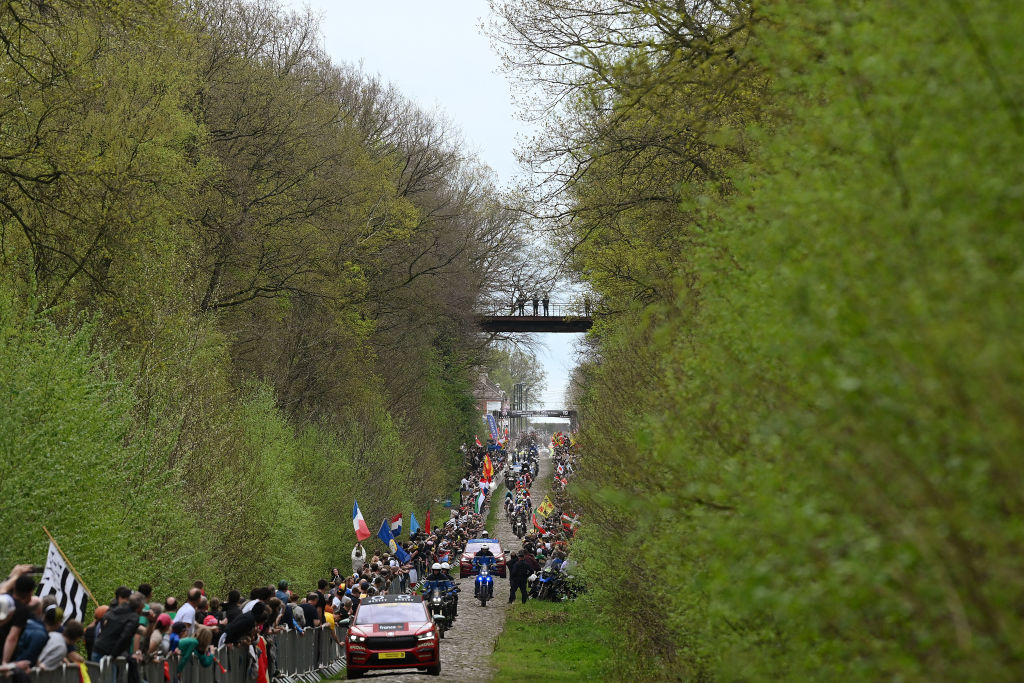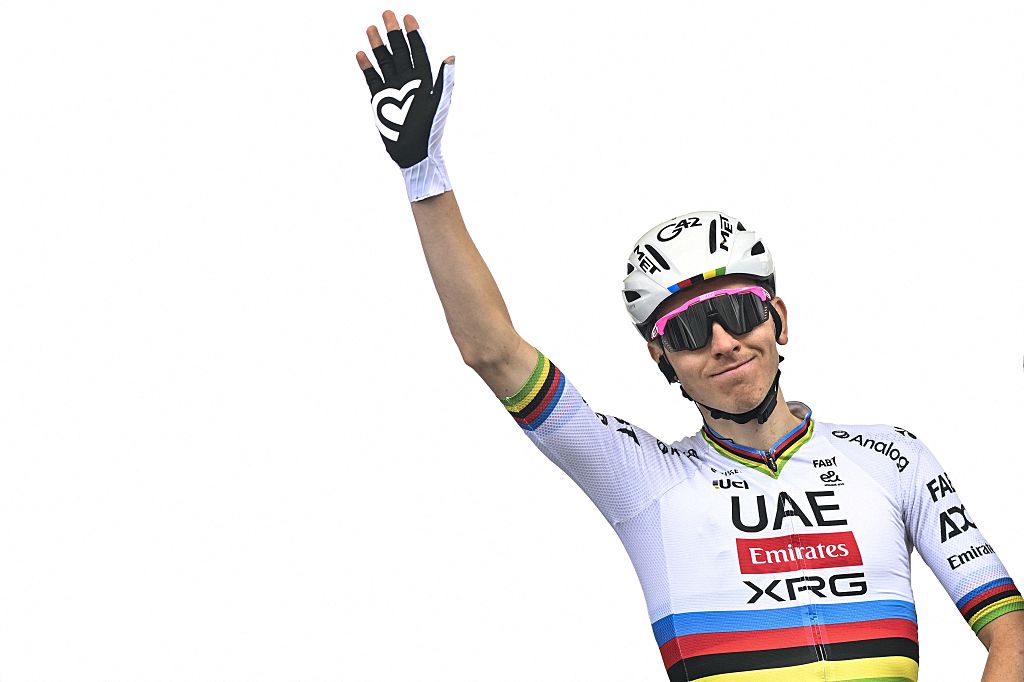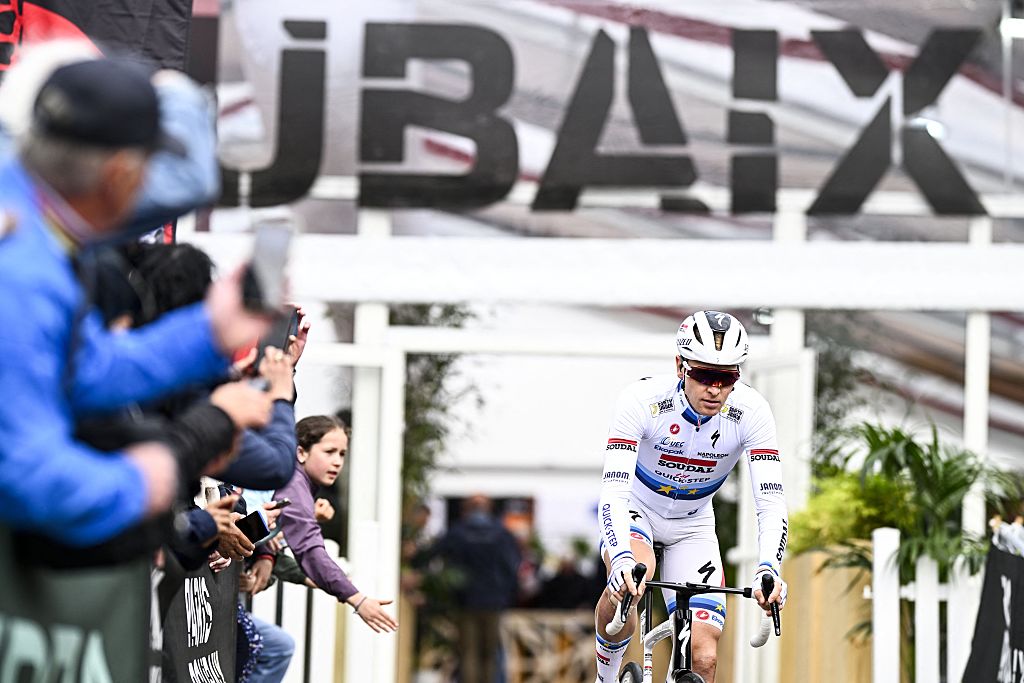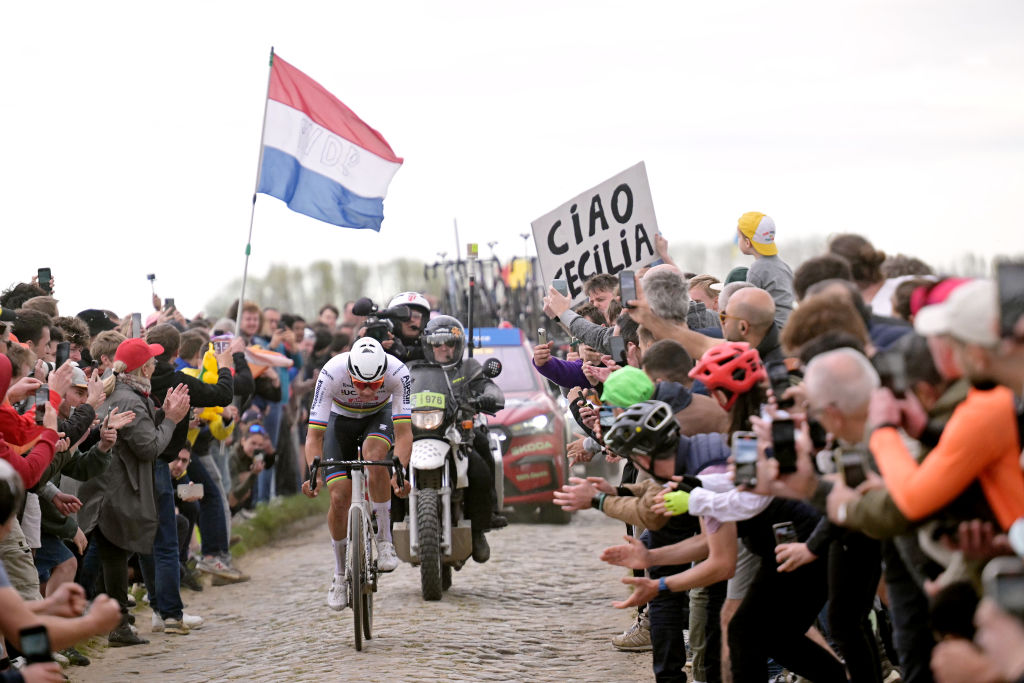Amstel Gold Race: Tadej Pogacar powers to a dominant solo win
Tour of Flanders winner drops Healy and Pidcock to win alone
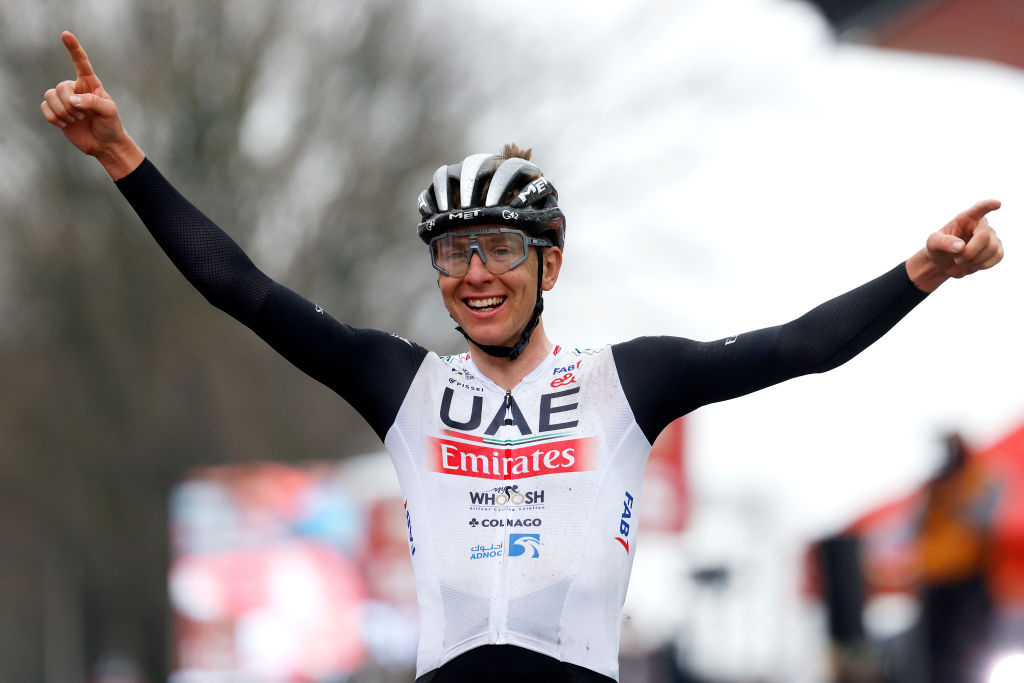
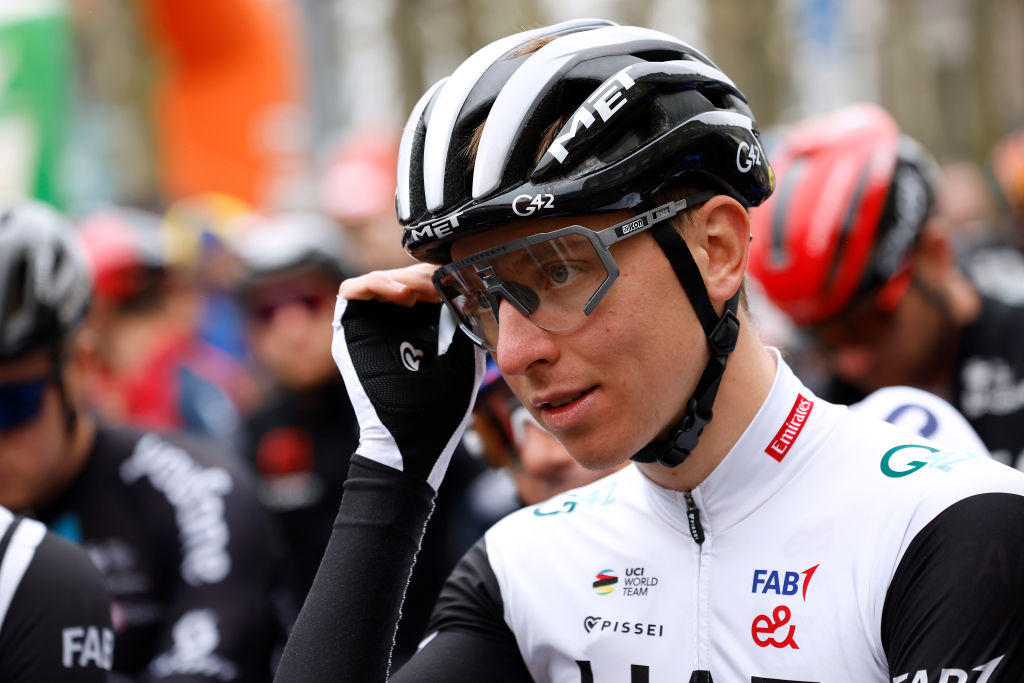
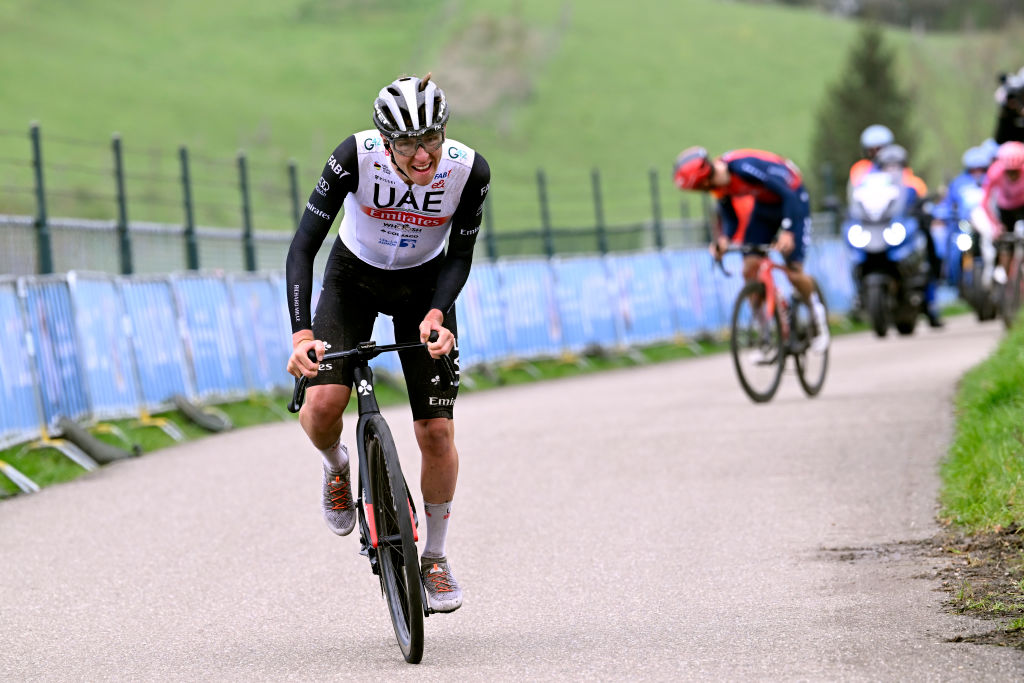
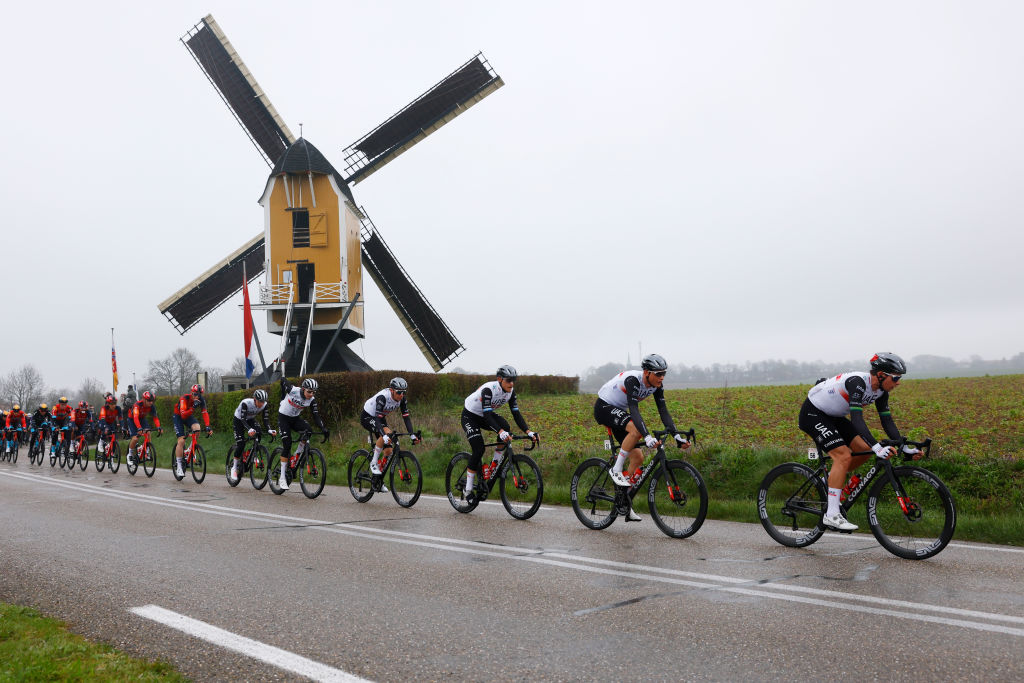
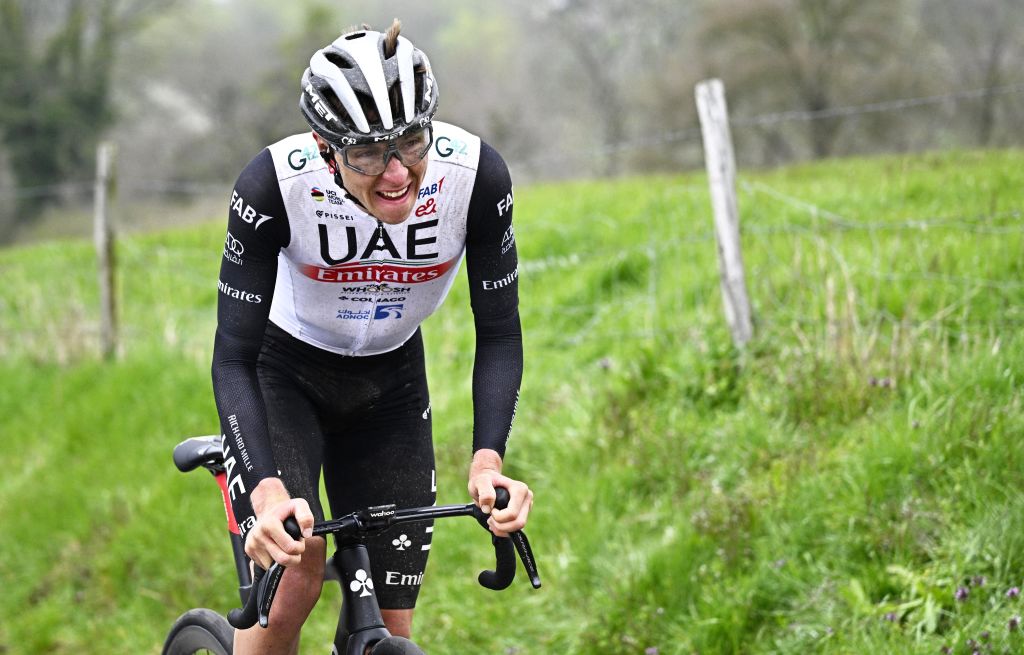
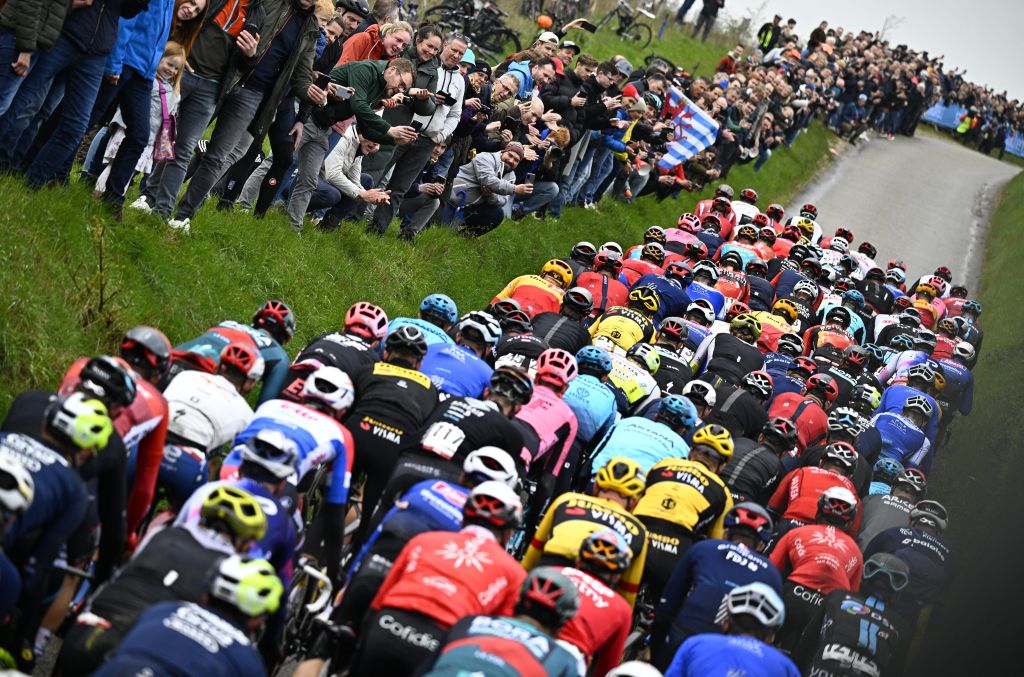
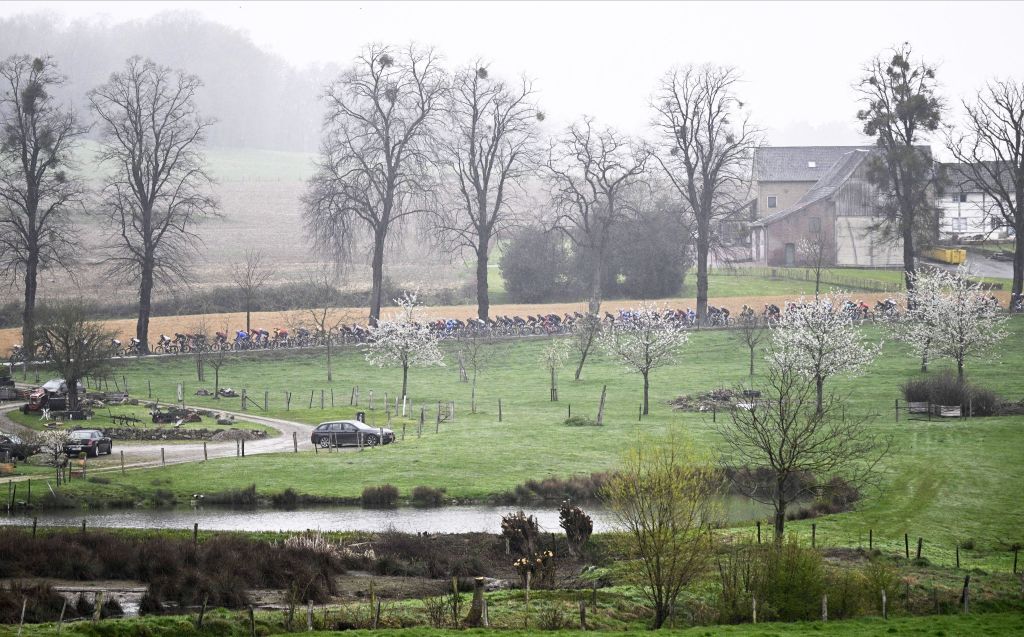
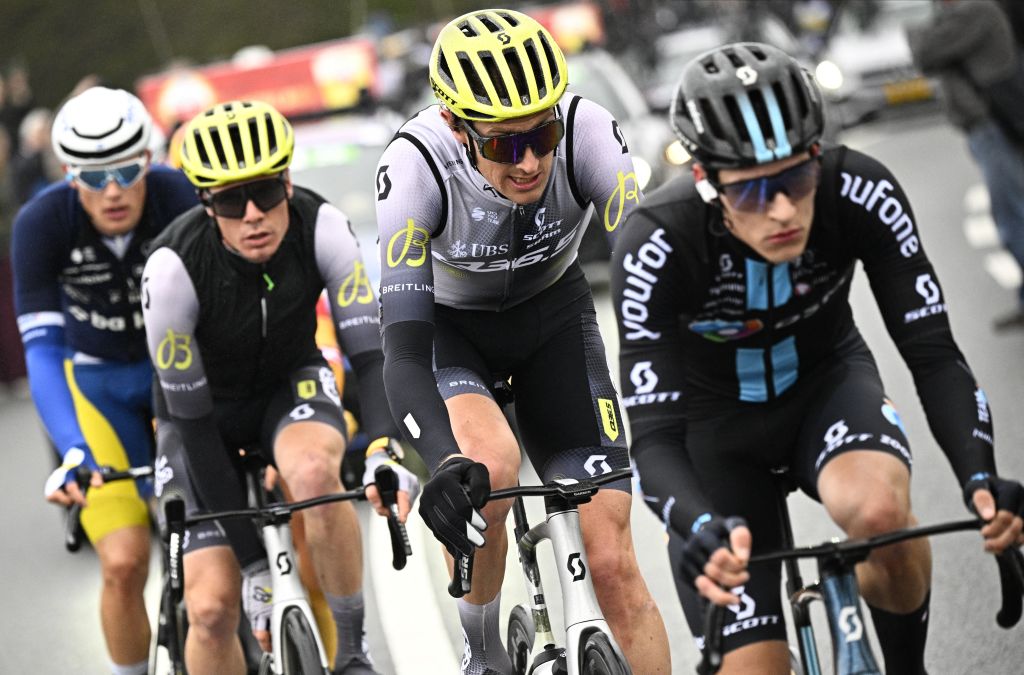
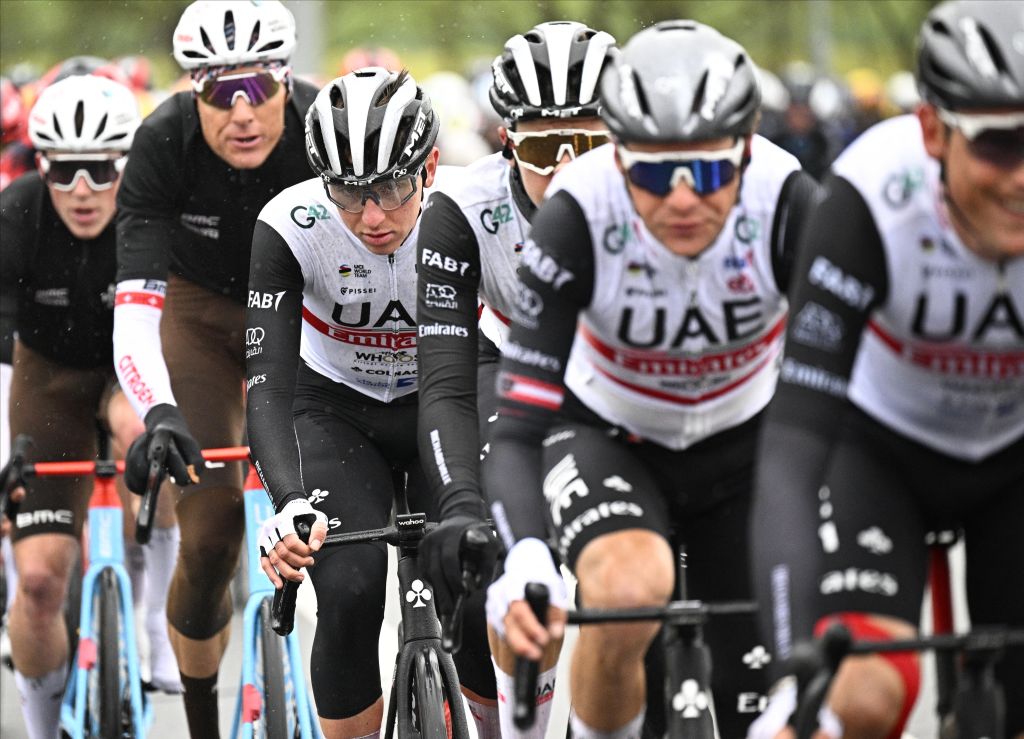
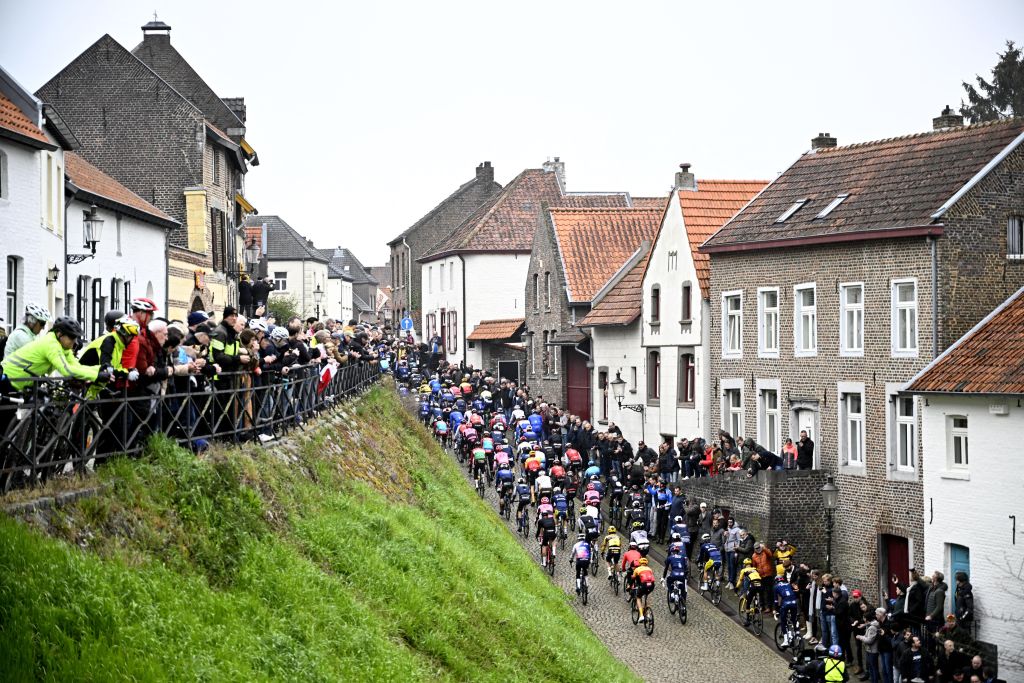
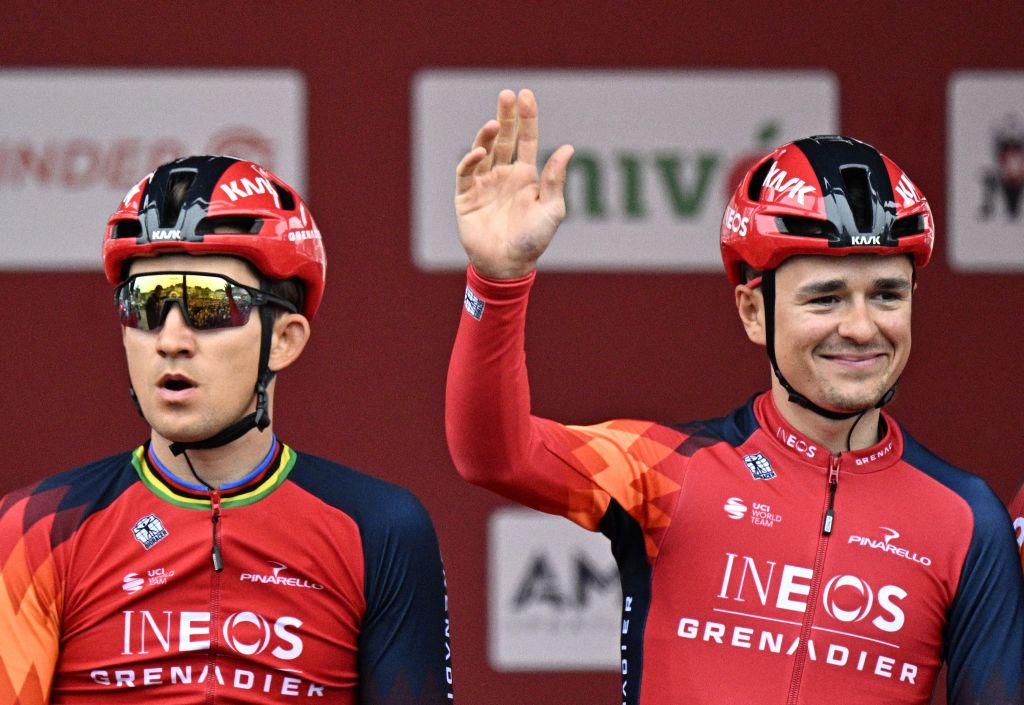
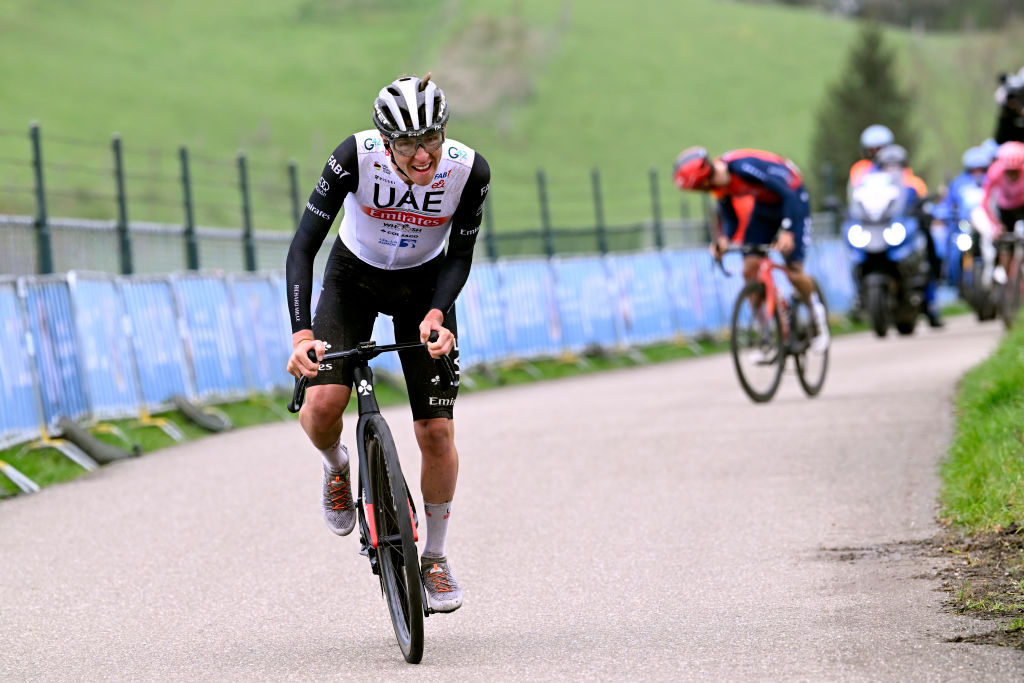
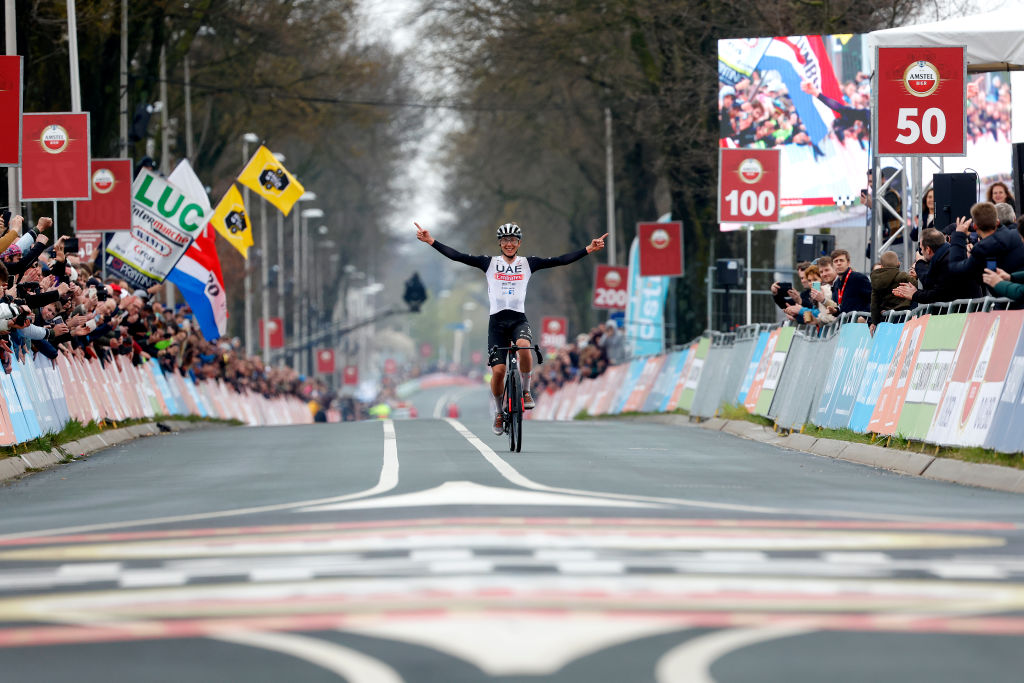
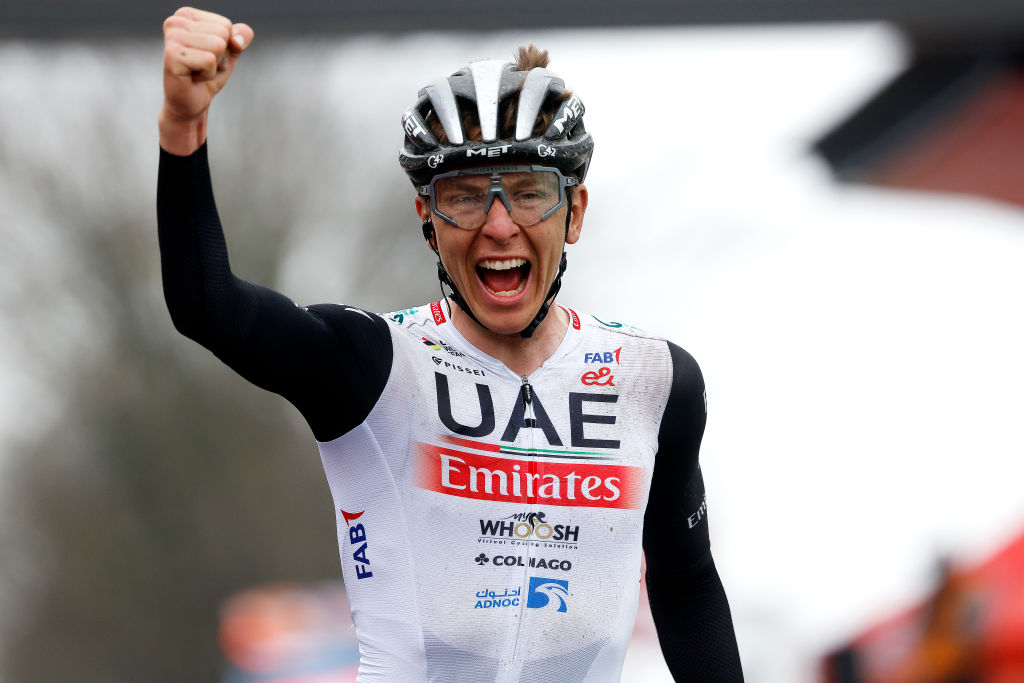

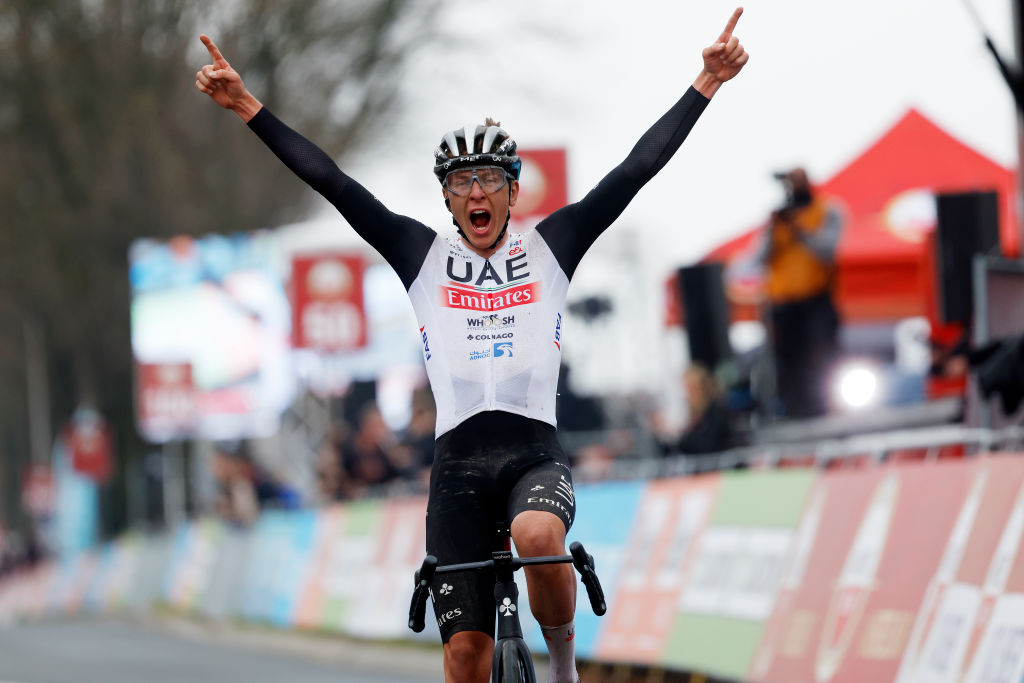
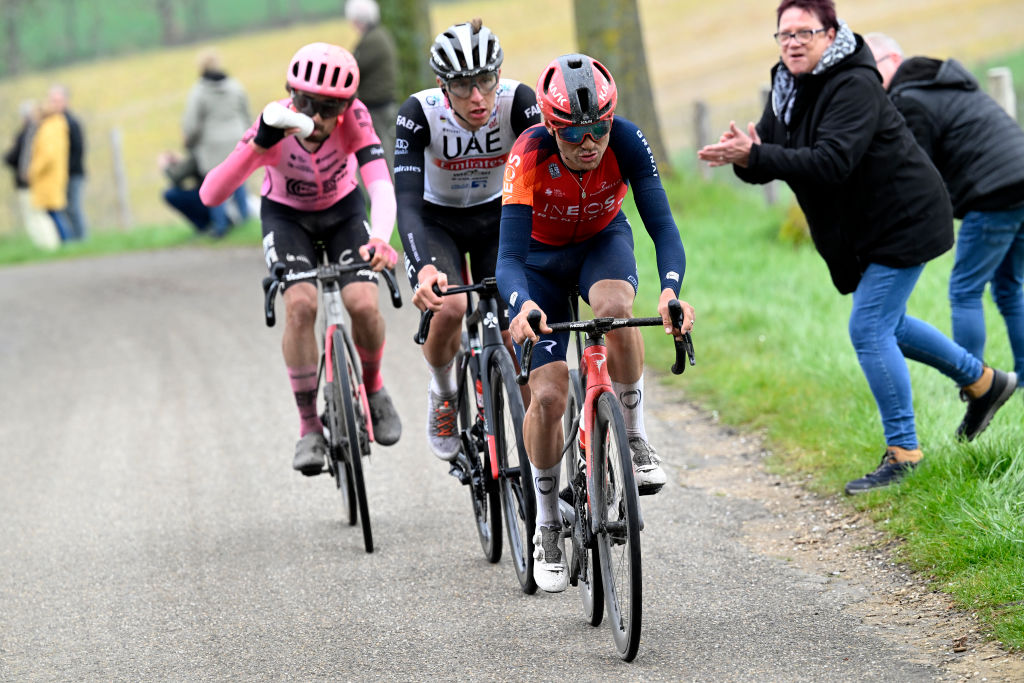
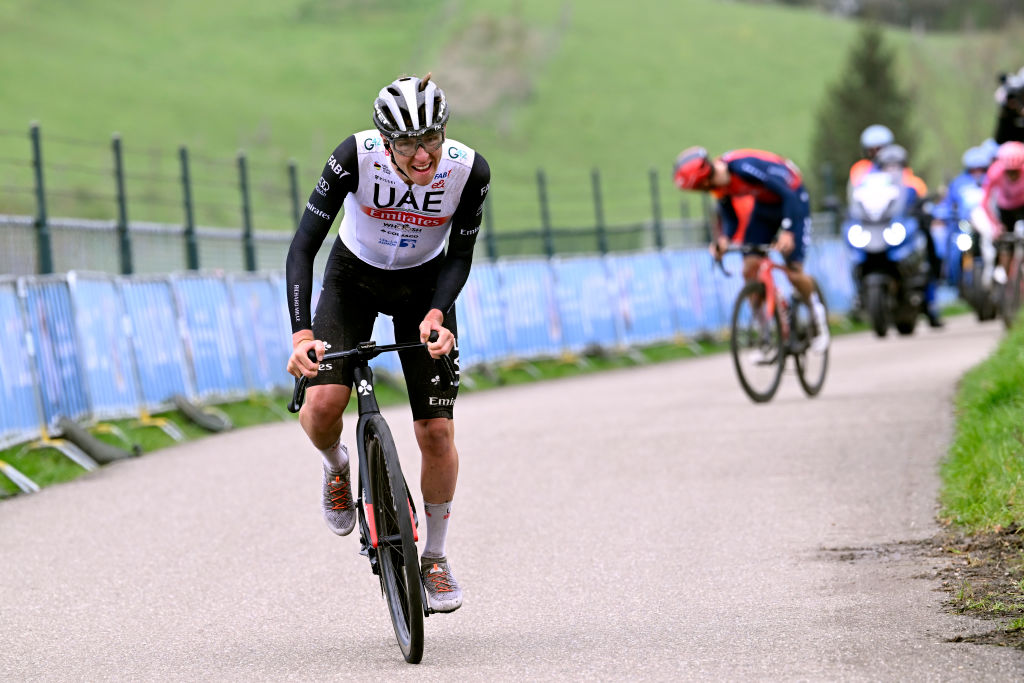
Tadej Pogačar has long since exhausted all superlatives, but he keeps adding lines to his palmarès all the same. He delivered his latest exhibition at Amstel Gold Race, dropping Tom Pidcock and Ben Healy on the Keutenberg with 29km still to race to claim a resounding victory in familiar style.
The trio had been part of the decisive 16-man move that went clear with 90km to go, and Pidcock and Healy were the only men able to withstand Pogačar’s initial onslaught on the Eyserbosweg with 36km remaining.
Their resistance would only last as far as the Keutenberg, however, as Pogačar unleashed another acceleration that took him to a place they simply could not reach. Healy was the first to yield, while Pidcock lasted 50 metres or so more, but Pogačar could not be contained. By the summit, he was out of sight.
From there, the race turned into the kind of lap of honour already seen on multiple occasions this Spring, as Pogačar made light work of the Cauberg to cross the finish line for the penultimate time with more than half a minute in hand.
If this were boxing, the race would have been stopped as he took the bell. Instead, Pogačar continued to land blows for another 16km, eventually coming home some 38 seconds clear of Healy.
The Irishman had signalled his ability with a string of fine displays this Spring, but he repeated the feat against exalted company here. Although he was unable to hold Pogačar, he was able to shake off Pidcock on the Geulhemmerberg to secure second place.
Pidcock, meanwhile, visibly struggled in the finale but he still managed to fend off Andreas Kron (Lotto-Dstny) and Alexey Lutsenko (Astana-Qazaqstan) for third, some 2:14 down on Pogačar. They were the only riders to finish within three minutes of the day’s runaway winner, who wasn’t even knocked off stride by having to ride a long time on a deflating tyre before he finally switched bikes before the Kruisberg with 40km to go.
“I did not expect that we’d go in the breakaway so early, and I was on a sort of flat tyre for many ks in the front and I was doubting I could come to the finish solo,” said Pogačar, who managed to change his bike and ride back up to the front in the space of one climb.
“I was really frustrated because we didn’t have cars for such a long time, but we managed to get the bike just in time before the final climbs. It was really tight, and really nervous at one moment.”
In hindsight, it was the greatest moment of suspense all afternoon. After latching back on, Pogačar proceeded to lay down the law on the Eyserbosweg, a move that splintered the front group and put paid to any hope of the chasers reeling them back in.
Two climbs later, Pogcar unleashed a winning move that had been suggested to him by the man he beat to the Tour of Flanders two weeks ago.
“Mathieu van der Poel told me I should go on the Keutenberg. It is the hardest climb and it suits me the most,” Pogačar said. “He told me that three days ago, he sent me a message. I will thank him for the advice.”
How it unfolded
Intense starts have been a featuring of the Classics this Spring, but the early break was allowed to slide clear with surprisingly little opposing friction shortly after the race left the start in Maastricht. On a gloomy, mist-shrouded morning, the early move of seven was quickly out of sight, even if the combined pace-making of UAE Team Emirates and AG2R Citroën ensured their lead was never allowed to nudge above five minutes.
Mathias Vacek (Trek-Segafredo), Leon Heinschke (DSM), Mattéo Vercher (TotalEnergies), Ward Vanhoof (Flanders-Baloise), Tobias Ludvigsson, Alessandro Fedeli (Q36.5) and Martin Urianstad (Uno-X) were the men in front, but an injection of urgency after 100km or so ensured that they would be swept up even before the live television pictures began.
There were, of course, many riders intent on anticipating Pogačar’s inevitable move in the finale, but when the next attack went clear with 90km remaining, the Slovenian himself was a part of it. Indeed, on the first time up the Cauberg with 76km to go, Pogačar whittled down the selection with a show of force of his own, and only ten riders remained with him in front: Pidcock, Healy, Lutsenko, Korn, Magnus Sheffield, Gianni Vermeersch (Alpecin-Deceuninck), Stan Van Tricht (Soudal-QuickStep), Lars van den Berg, Kevin Geniets, (Groupama-FDJ) and Alex Zingle (Cofidis).
Jumbo-Visma and Bahrain Victorious were among the teams to miss the move and they gave chase behind, but the firepower in front meant that theirs was a forlorn task, even when the gap oscillated between 20 and 40 seconds for the bones of 40km.
Pogačar could be seen hailing a team car with more than 60km to race for what later emerged to be a deflating tyre. Had he been forced to stop and wait for the chasers there, the race would inevitably have taken on a different hue. Instead, the ease with which he rejoined the fray on the Kruisberg indicated exactly how the afternoon was likely to play out.
The one bum note came from the race organisation, with the race director's car sitting far too close to Pogačar with 10km to go, and just as Healy had made some inroads into his buffer. It's likely that Pogačar would have prevailed regardless, but it was an incident that left a sour taste.
“I don't like it," Pogačar said in his press conference afterwards. "I can't do much about it. I can only cycle as fast as possible. The car was too close, but I don't think the moment lasted too long."
In winning Amstel Gold Race, Pogačar becomes the fourth rider in history to win the Dutch event and the Tour of Flanders in the same Spring. More pertinently, his display here makes him the obvious favourite to continue his dominance at Flèche Wallonne and Liège-Bastogne-Liège in the week ahead.
Results
Get The Leadout Newsletter
The latest race content, interviews, features, reviews and expert buying guides, direct to your inbox!

Barry Ryan was Head of Features at Cyclingnews. He has covered professional cycling since 2010, reporting from the Tour de France, Giro d’Italia and events from Argentina to Japan. His writing has appeared in The Independent, Procycling and Cycling Plus. He is the author of The Ascent: Sean Kelly, Stephen Roche and the Rise of Irish Cycling’s Golden Generation, published by Gill Books.
Latest on Cyclingnews
-
Paris-Roubaix Men Live - Van der Poel and Pogačar do battle again at Queen of the Classics
Don't miss all the action from the elite men's 259.2km race from Compiègne to Roubaix -
'He can win it, absolutely' - Greg LeMond backs Tadej Pogačar as key contender for 2025 Paris-Roubaix
Last defending Tour de France champion to race Roubaix before Pogačar calls Slovenian 'one in a million' -
2025 Paris-Roubaix: heavy overnight rain causes wet, slippery cobblestone sectors
Weather and route expected to get drier, but some sectors could still be affected by riskier conditions -
How to watch Paris-Roubaix 2025 – Live stream, TV coverage for the Hell of the North
All the broadcast information for Paris-Roubaix Femmes on April 12 and Paris-Roubaix on April 13
